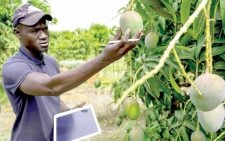Over 5,300 Kenyans suffer from blood disorder

An estimated 5,300 Kenyans suffer from haemophilia, a rare genetic blood disorder that causes blood not to clot properly. According to statistics from the Kenya Haemophilia Association, one in every 10,000 Kenyans suffers from haemophilia.
As World Haemophilia Day is marked, patients in Kenya continue to face a number of challenges such as inaccurate diagnosis, high cost and scarcity of treatment facilities, and limited awareness about the condition both among the public and within the healthcare system.
Haemophilia can cause continuous bleeding both internally and externally due to the absence of blood clotting proteins. Patients experience prolonged bleeding even from minor injuries, and in severe cases, spontaneous internal bleeding into joints and muscles, which can lead to permanent disability if left untreated.
In cases where haemophilia is undiagnosed, even minor injuries or surgeries can lead to serious internal bleeding, which can be life-threatening.
The main symptoms of haemophilia are easy bruising, having large bruises, and greater than normal bleeding from surgery or menstruation.
Kenya Haemophilia Association Chairman Dr Kibet Shikuku notes that the disease arises from a lack of clotting factors, which is a function of the X chromosome. Both men and women have an X chromosome, with women having two (XX) and men having one (XY).
Since women have two X chromosomes, one steps into place and aids in clotting blood in case the other is abnormal stopping unnecessary bleeding. The disease is prevalent in men since they only have one X chromosome but women are also affected.
Females who inherit a gene for haemophilia often have an unaffected gene on their other X chromosome. This means that while they can pass on the gene for haemophilia to their children, they may not be affected by haemophilia themselves.
This year’s theme “Access for all: Women and girls bleed too,” seeks to raise awareness of challenges faced by women and girls with bleeding disorders.















